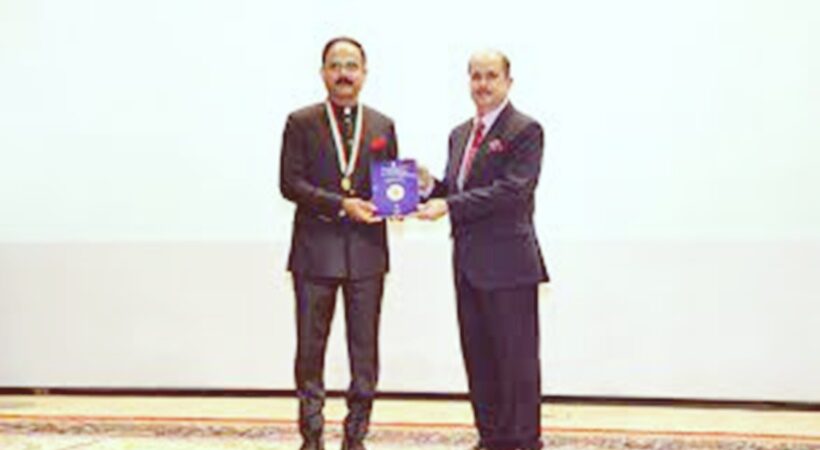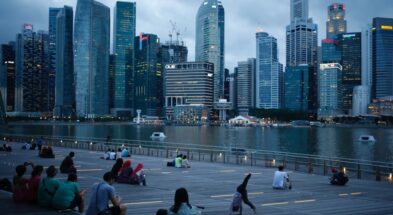At a special ceremony held at the Indian Embassy in Riyadh, the Ambassador of India to the Kingdom of Saudi Arabia, Ausaf Sayeed presented Eram Group chairman and managing director Siddeek Ahmed with the 2021 Pravasi Bharatiya Samman Award (PBSA).
The President of India confers the 2021 Pravasi Bharatiya Samman Award (PBSA) as part of the Pravasi Bharatiya Divas (PBD) Conventions organised every year since 2003. The award acknowledges members of the Indian community and their honest effort to bring about a positive change through social and humanitarian upliftment.
“The Pravasi Bharatiya Samman Award (PBSA) is the highest honour conferred on overseas Indians. PBSA is conferred by the Hon’ble President of India as part of the Pravasi Bharatiya Divas Convention on Non-Resident Indians, Persons of Indian Origin or an organisation/institution established and run by the Non-Resident Indians or Persons of Indian Origin in recognition of their outstanding achievements both in India and abroad,” the website of Ministry of External Affairs said.
“The 16th edition of the Pravasi Bharatiya Divas (PBD) Convention was held virtually on 9th January 2021. The Pravasi Bharatiya Samman Awards were conferred by the Hon’ble President at the PBD Convention in the valedictory session of the Pravasi Bharatiya Divas celebrations,” it added.
Eram’s unique initiative — an e-toilet — is an automated public sanitation solution. It is in line with the Swachh Bharat Abhiyan and was presented at the UN Innovation exhibition.
The United Nations country representative acknowledged the award for its game-changing potential.
“The awardees represent the vibrant excellence achieved by our diaspora in various fields. Several countries have been represented for the first time among the awardees,” the MEA website said.
The Swachh Bharat Mission (SBM), Swachh Bharat Abhiyan, or Clean India Mission, is a countrywide campaign that the Government of India initiated in 2014. The mission’s goal was to improve solid waste management and eliminate open defecation.
The mission had been divided into two sections: rural and urban. In rural areas, “SBM – Gramin” was financed and monitored through the drinking water and sanitation ministry. On the other hand, the Ministry of Housing and Urban Affairs oversaw the “SBM – urban”.



















